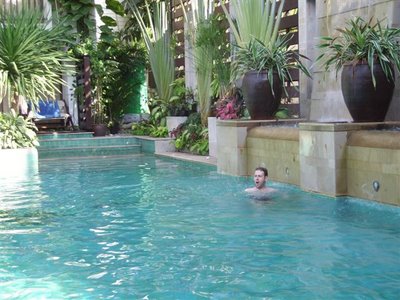
There’s been a flood of news stories about water in Australia in the past few days. The federal budget has dedicated $500 million to assist the Murray-Darling basin, there’s been debate about a new large dam in Queensland, and changes to Canberra’s water management regime.
The NSW government has also been selling its new Metropolitan Water Plan, with the announcement of two new water recycling plants and the opening of water recycling in NSW to competition.
One new water recycling plant, to be built in western Sydney, will treat waste water from sewage treatment plants and use it for irrigation, environmental flows and dual reticulation use in new housing estates. The proposed plant will apparently be five times bigger than the recycling plant at Rouse Hill, which is currently Australia's largest residential recycling project. The other will, interestingly, be built in Kurnell (where the desalinisation plant was to be built) and supply recycled water for industrial uses on the Kurnell peninsula.
The other ‘announcement’ is that the metropolitan water industry in NSW will be opened up to competition to try to encourage water recycling. This was actually originally announced back in December following an inquiry into water and wastewater in Sydney (good summary here) but the Government has now released new draft rules which will bring the changes into effect. The new rules for water supply and treating waste water will take the current duopoly away from Sydney Water and Hunter Water. Private competitors will have access to pipes mains and sewers to treat and supply recycled water. The result should be cheaper industrial water for business and less consumption of drinking water by industrial users.
I’d welcome comments from anyone who knows a bit more about this area, but it seems to me that these are very positive developments. It seems sensible to open water supply infrastructure not only to users of water but also to potential recyclers and suppliers of water – in the same way that third parties have access to the electricity grid to supply electricity.
The announcements over the last few months of ‘newly discovered’ groundwater supplies and the tapping of deep water in Sydney’s dams has given Sydney some breathing space for its drinking water supply. This means that we can avoid the excessively expensive, energy intensive and environmentally damaging option of a desalinisation plant. But we should use this breathing space to develop water (and stormwater) recycling and water saving measures to ensure that desalinisation doesn’t return to the agenda.


5 comments:
Last year I had a chat with someone studying water resources of the Murray-Darling. After talking the science we got onto cotton. Like sheep, cotton is not well suited to Australia's hydro-climatic environment - cotton sucks a lot of water. I wonder how long it will be until discussion of the high water demands of the cotton industry enters the debate. In a way, it might require the decriminalisation of marijuana (assuming hemp doesn't need as much water).
Interesting site. Useful information. Bookmarked.
»
Greets to the webmaster of this wonderful site! Keep up the good work. Thanks.
»
Super color scheme, I like it! Keep up the good work. Thanks for sharing this wonderful site with us.
»
Looks nice! Awesome content. Good job guys.
»
Post a Comment